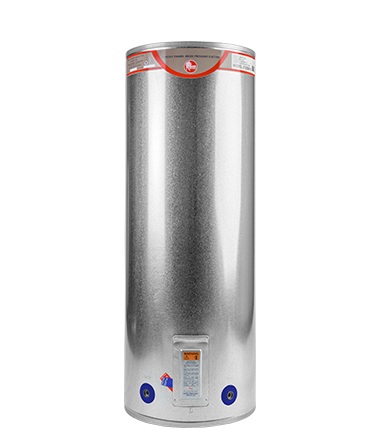Comparing Gas vs. Electric Hot Water Heaters
Hot water heaters are essential appliances in modern households, providing the hot water needed for showers, dishwashing, laundry, and other daily tasks. When choosing a gas hot water, one of the key decisions is whether to opt for a gas or electric model. Both types have their advantages and disadvantages, and the best choice depends on various factors including cost, efficiency, environmental impact, and personal preference. This article compares gas and electric hot water heaters to help you make an informed decision.
Cost of Installation and Operation
Installation Costs: The initial installation cost of a gas water heater is typically higher than that of an electric water heater. This is due to the need for gas lines, ventilation systems, and possibly more complex installation procedures. In contrast, electric water heaters are usually simpler and cheaper to install because they only require electrical wiring.
Operating Costs: Operating costs can vary significantly between gas and electric water heaters. Generally, gas water heaters are more economical to run because natural gas tends to be cheaper than electricity in many areas. However, this can depend on local utility rates. Over time, the lower operating costs of gas water heaters can offset the higher initial installation costs.
Energy Efficiency
Gas Water Heaters: Gas water heaters are typically less energy-efficient than electric models. They lose more heat during the heating process and standby periods because of the need to vent combustion gases. However, they tend to heat water faster than electric units, which can be a significant advantage for larger households with high hot water demand.
Electric Water Heaters: Electric water heaters are generally more energy-efficient because they do not lose heat through venting. High-efficiency electric models, such as heat pump water heaters, can be even more efficient, using significantly less energy than standard electric or gas models. However, they usually have a slower recovery rate, meaning it takes longer to heat a new tank of water after it has been depleted.
Environmental Impact
Gas Water Heaters: Gas water heaters produce greenhouse gases (GHGs) during combustion, contributing to climate change. Additionally, extracting and transporting natural gas can have significant environmental impacts. On the other hand, they can be more environmentally friendly than electric heaters in regions where electricity is primarily generated from coal or other fossil fuels.
Electric Water Heaters: Electric water heaters produce no direct emissions, making them a cleaner option at the point of use. Their overall environmental impact depends on the source of the electricity they use. In areas with a high proportion of renewable energy, electric water heaters can have a much lower carbon footprint. Conversely, if the local grid relies heavily on fossil fuels, their environmental benefits may be less significant.
Reliability and Maintenance
Gas Water Heaters: Gas water heaters tend to have more complex components and require regular maintenance to ensure safe operation, such as checking the gas lines and venting systems. They can be susceptible to pilot light failures and gas leaks, which require immediate attention. However, they often have a longer lifespan compared to electric models.
Electric Water Heaters: Electric water heaters have fewer moving parts and generally require less maintenance. There are no concerns about gas leaks or venting issues. However, electric models can be vulnerable to issues like sediment buildup in the tank, which can reduce efficiency and necessitate periodic cleaning or replacement of heating elements.
Performance and Convenience
Gas Water Heaters: Gas water heaters typically offer faster heating times and higher flow rates, making them suitable for large households with high hot water demands. They can continue to operate during power outages, which is a significant advantage in areas prone to electrical disruptions.
Electric Water Heaters: Electric water heaters are often more compact and easier to install in a variety of locations. They are quieter during operation and do not require ventilation, making them more versatile for indoor installation. However, their slower heating times and lower flow rates may be a drawback for some users.
Safety Considerations
Gas Water Heaters: Gas water heaters pose certain safety risks, such as gas leaks and carbon monoxide poisoning, which necessitate proper installation and regular maintenance. They also require proper ventilation to prevent the buildup of harmful gases.
Electric Water Heaters: Electric water heaters are generally considered safer since they do not involve combustion. However, they do pose risks associated with electrical components, such as electrical shocks or fires, especially if improperly installed or maintained.
Conclusion
Both gas and electric hot water heaters have their advantages and disadvantages, and the best choice depends on individual needs and circumstances. Gas water heaters typically offer lower operating costs and faster heating times, making them ideal for larger households with high hot water demand. However, they come with higher installation costs and require more maintenance.
Electric water heaters are generally more energy-efficient, safer, and easier to install. They are well-suited for smaller households or in areas where electricity is generated from renewable sources. However, their slower heating times and higher operating costs in some regions can be a drawback.
When choosing between a gas and electric hot water heater, consider factors such as installation and operating costs, energy efficiency, environmental impact, reliability, performance, and safety. By carefully evaluating these aspects, you can select the hot water heater that best meets your needs and preferences.
Contact Us:
Hot Water Solutions
3d Tait Place, Auckland
Email: info@hotwatersolutions.nz
Call Us: 0800 HWSOLU (497658)
Google map: https://maps.app.goo.gl/weuxr8LohUEv2ooj6
Social Links:
https://www.facebook.com/Hot-Water-Solutions-100885308035357/




Comments
Post a Comment